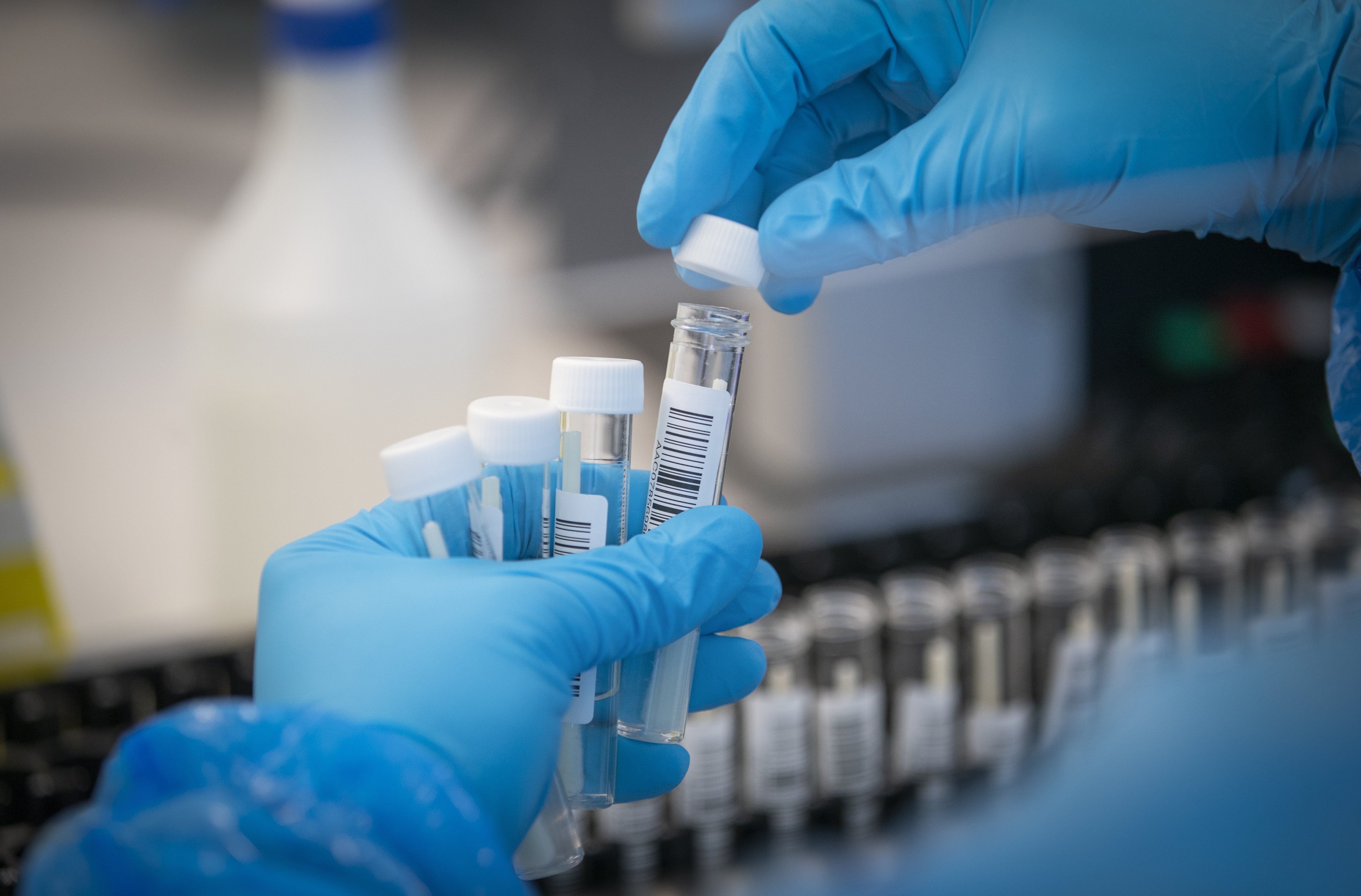Scotland’s Covid cases could peak in next couple of weeks – expert
The BA.2 sub-variant of Omicron now makes up more than 80% of coronavirus cases in Scotland.

Your support helps us to tell the story
From reproductive rights to climate change to Big Tech, The Independent is on the ground when the story is developing. Whether it's investigating the financials of Elon Musk's pro-Trump PAC or producing our latest documentary, 'The A Word', which shines a light on the American women fighting for reproductive rights, we know how important it is to parse out the facts from the messaging.
At such a critical moment in US history, we need reporters on the ground. Your donation allows us to keep sending journalists to speak to both sides of the story.
The Independent is trusted by Americans across the entire political spectrum. And unlike many other quality news outlets, we choose not to lock Americans out of our reporting and analysis with paywalls. We believe quality journalism should be available to everyone, paid for by those who can afford it.
Your support makes all the difference.Coronavirus cases could peak in the next couple of weeks in Scotland as the BA.2 sub-variant of Omicron drives a spike in numbers, a public health expert has said.
Dr Christine Tait-Burkard, of the University of Edinburgh, said keeping the requirement for face coverings is in line with dealing with the surge and is a “relatively easily-achieved measure”.
First Minister Nicola Sturgeon on Tuesday pushed back the date for ditching laws for people to wear face coverings on public transport and in some settings, having previously signalled this would move from being a legal requirement to being guidance, on Monday March 21.
She told MSPs that with the “current spike” in cases, ministers had agreed it was “prudent” for this measure to remain in place and the legal requirement will be reviewed again in two weeks’ time.
The BA.2 sub-variant of Omicron now makes up more than 80% of coronavirus cases in Scotland and appears to have become dominant faster than in England.
What we are seeing in the numbers is that we could probably peak this week or the week thereafter in terms of cases
Asked whether it was prudent to keep the requirement for face coverings, Dr Tait Burkard told BBC Scotland’s Good Morning Scotland programme: “It is indeed kind of line with what we are seeing with the new sub-variant of Omicron which is a very big spike in cases, in fact we have the most cases in the population at this point than ever before in the pandemic.
“It’s also realistic to look at this from about a two-week perspective because what we are seeing in the numbers is that we could probably peak this week or the week thereafter in terms of cases, and we would actually see an easing and a clear indication before lifting face masks, and that’s kind of our last barrier to go, and also our last reminder to go.
“And at the same time it is a relatively easily-achieved measure that has less impact on the economy. Whilst it might deter some people from going out, it might incentivise others for going out. I think there’s a difficult balance to take there.”
There were 1,996 people in hospital on Monday with recently confirmed Covid-19, up 191 on the previous day, with 33 in intensive care, up six.
That is higher than the Omicron peak of 1,571 which was recorded in January this year, with more patients in hospital than at any time since January 27 last year when the total was 2,016.
However Deputy First Minister John Swinney said the number of people going into hospital is “beginning to recede” although he added there is still “a large number of people in hospital with Covid”.
Speaking on the same programme, he said: “The fact that we are seeing a slowing up in the rate of hospital admissions is an encouraging sign that the peak is being reached, or is about to be reached.
“That gives us some encouragement that with the extra couple of weeks on face coverings we can get to a position whereby that last legal requirement can be removed about the beginning of April.”
Mr Swinney, the Scottish Government’s Covid Recovery Secretary, said the recent rise in cases meant ministers felt “we need just a little bit more protection”.
He also said the World Health Organisation is “very clear” that face coverings “contribute significantly to assisting in interrupting the circulation of the virus” and that wearing masks can “provide a level of routine protection which can assist in trying to reduce the number of cases that we have”.
Dr Tait Burkard, a research fellow at the University of Edinburgh’s Roslin Institute and an expert on coronaviruses, said while masks help reduce virus levels in public places they are less effective against Omicron.
She suggested that vulnerable people should be advised to upgrade their coverings to FFP2 or N95 masks for more protection.
The academic said: “The impacts that the mask wearing makes without many of the other restrictions in place is small, or it’s smaller than it ever was before.
“One (reason) is that unfortunately with Omicron the kind of less protective masks, the simple surgical masks, the thin ones that you just ring round your ears, the fabric ones, they’re not as protective as they were against the previous variants, just because we need to inhale less of the virus to get infected, so both time of exposure needed to get infected is less, but they still help reducing virus level in public places, and especially for vulnerable people that can make the difference.
“But there should be also the advice that for vulnerable people it might be a good moment, or probably a very pertinent moment, to upgrade masks to so-called FFP2 or N95 masks, the thicker ones that fit very closely around your face to protect yourself more than others.”